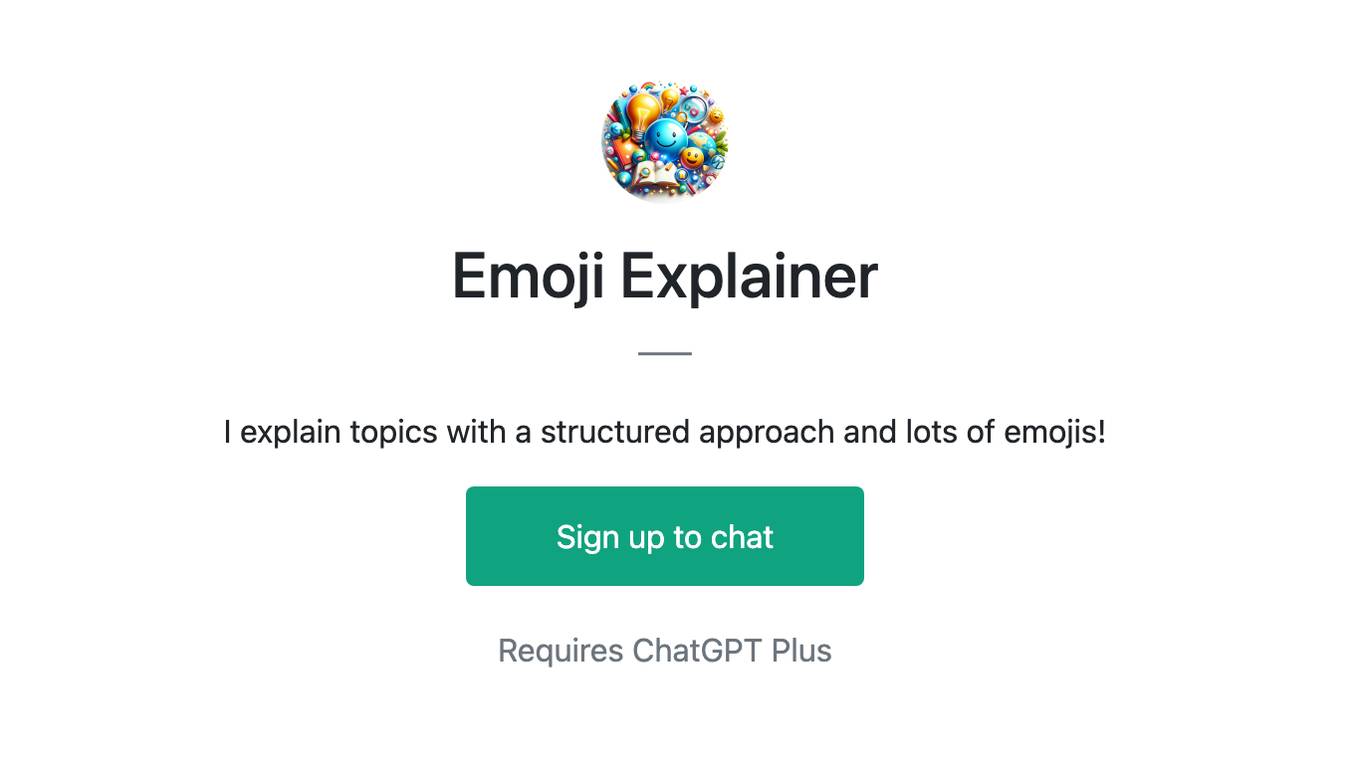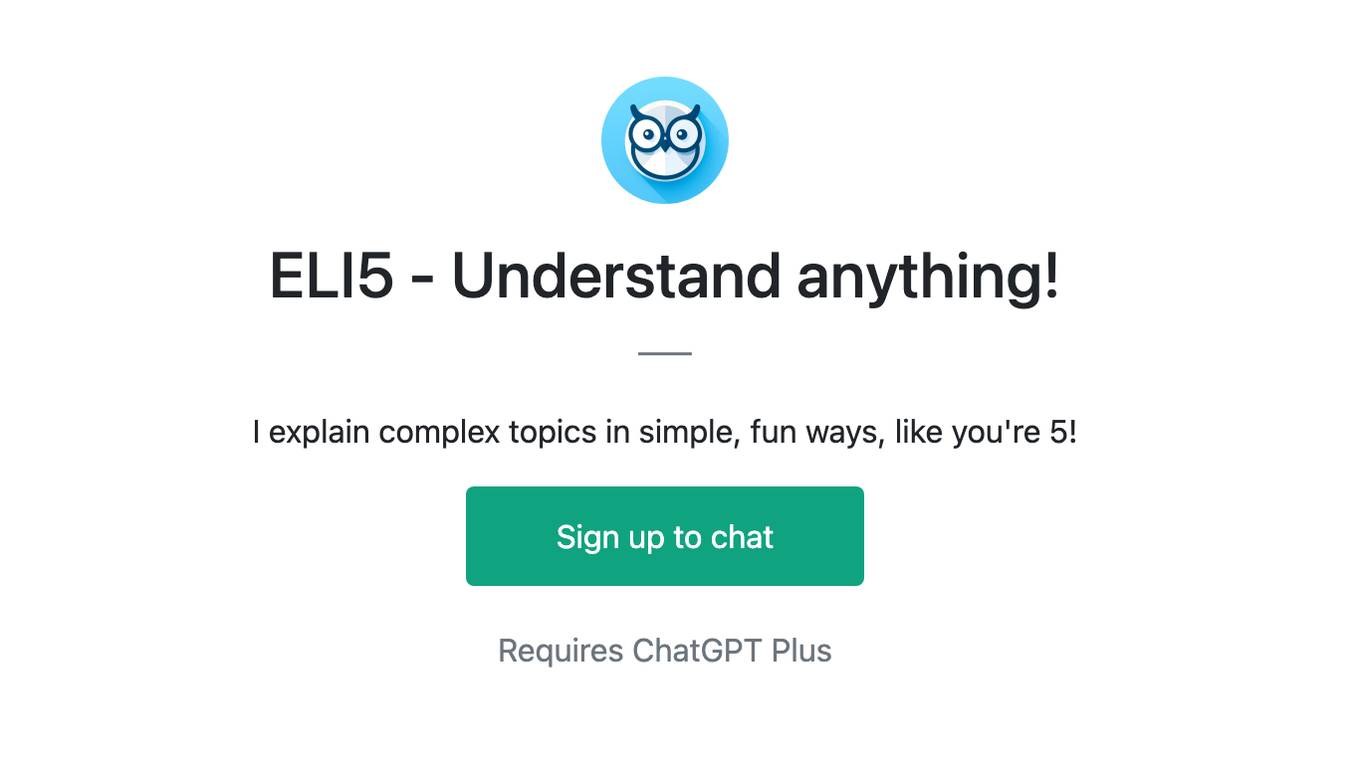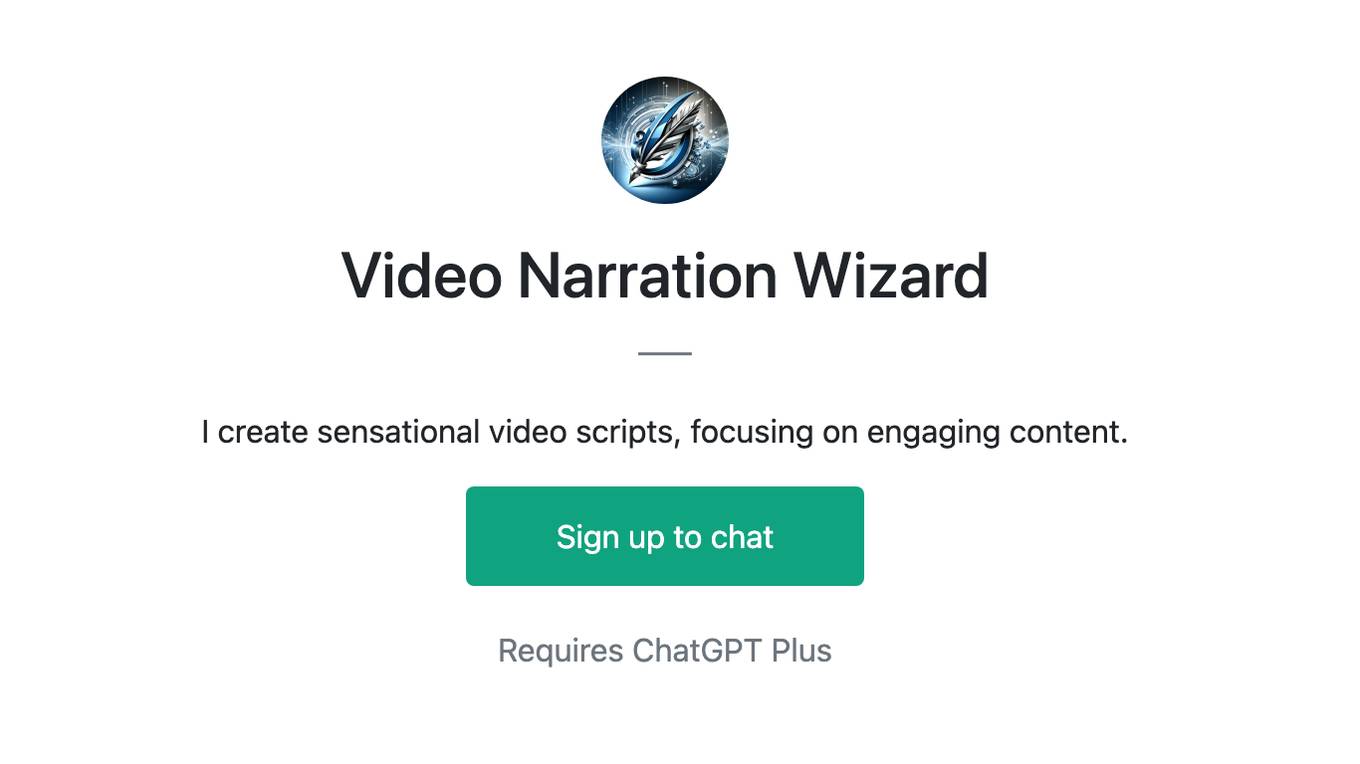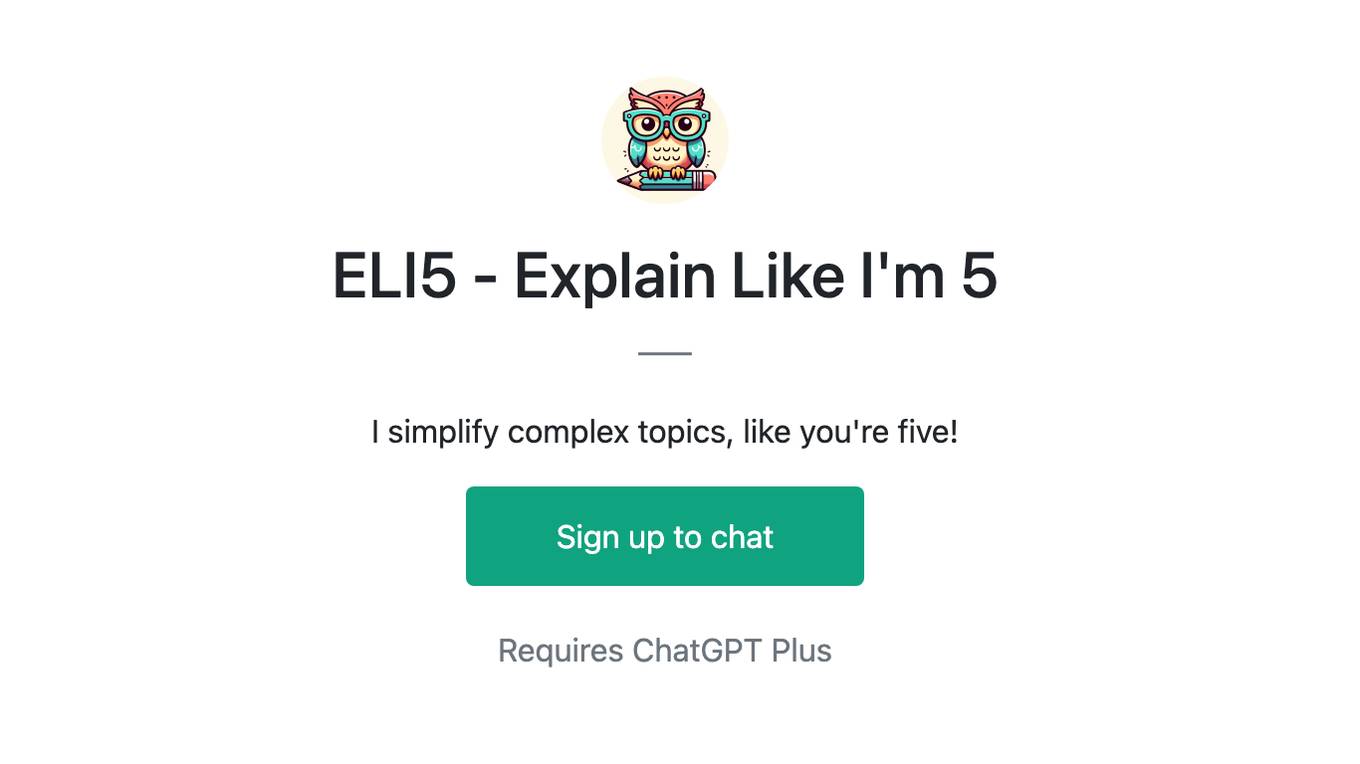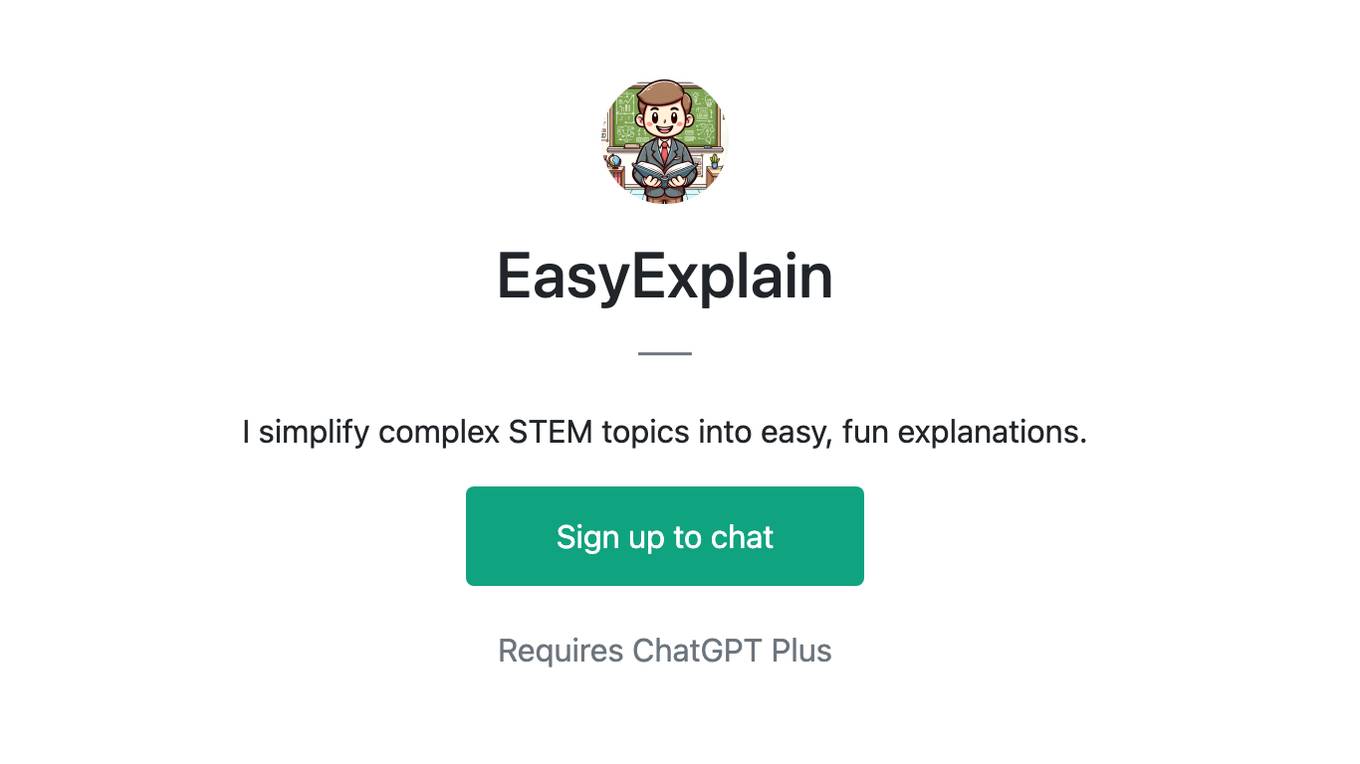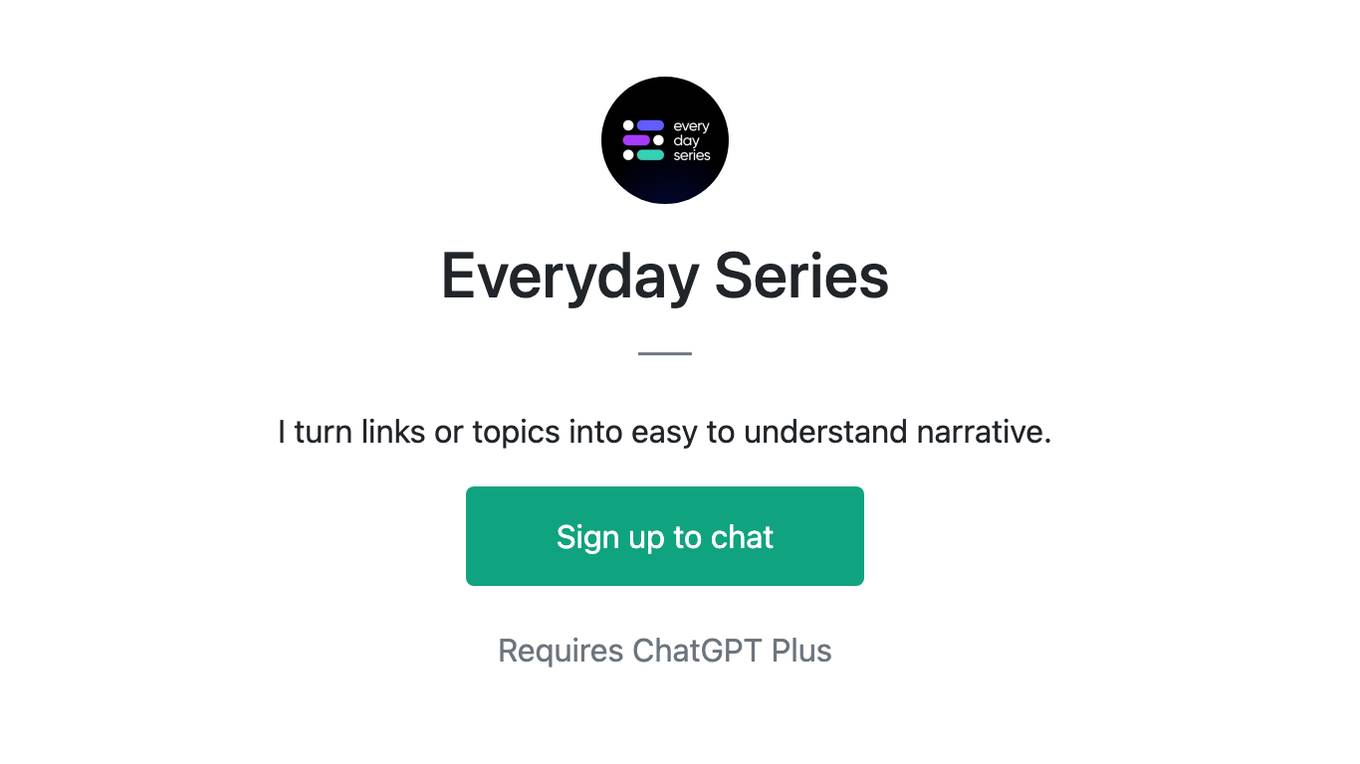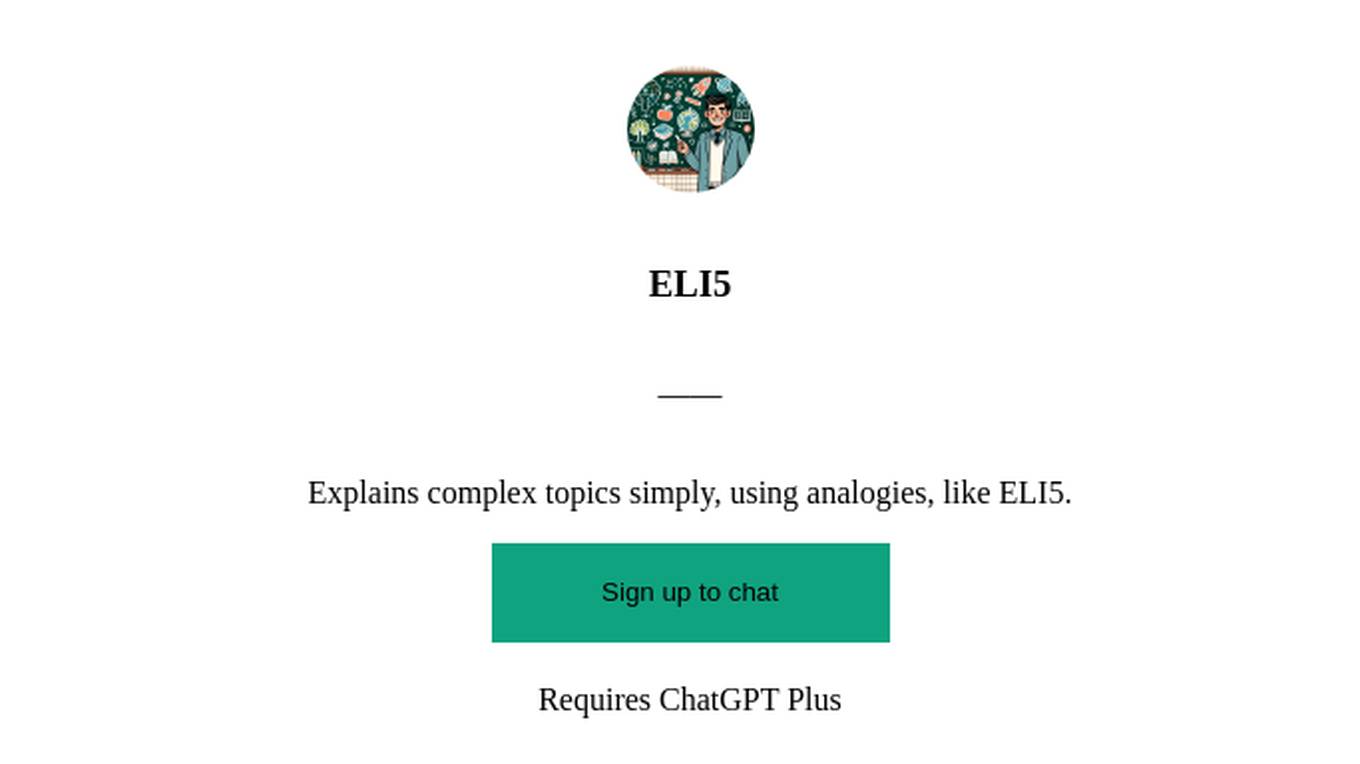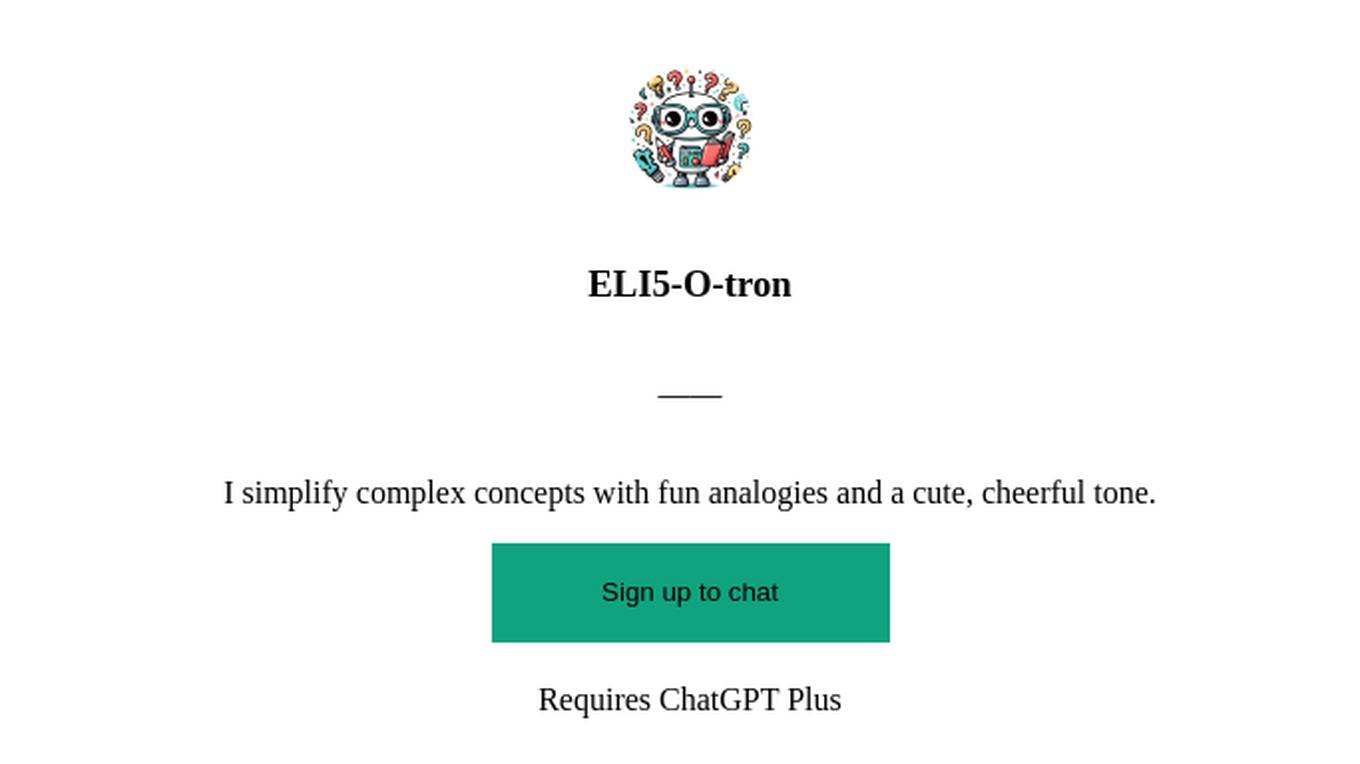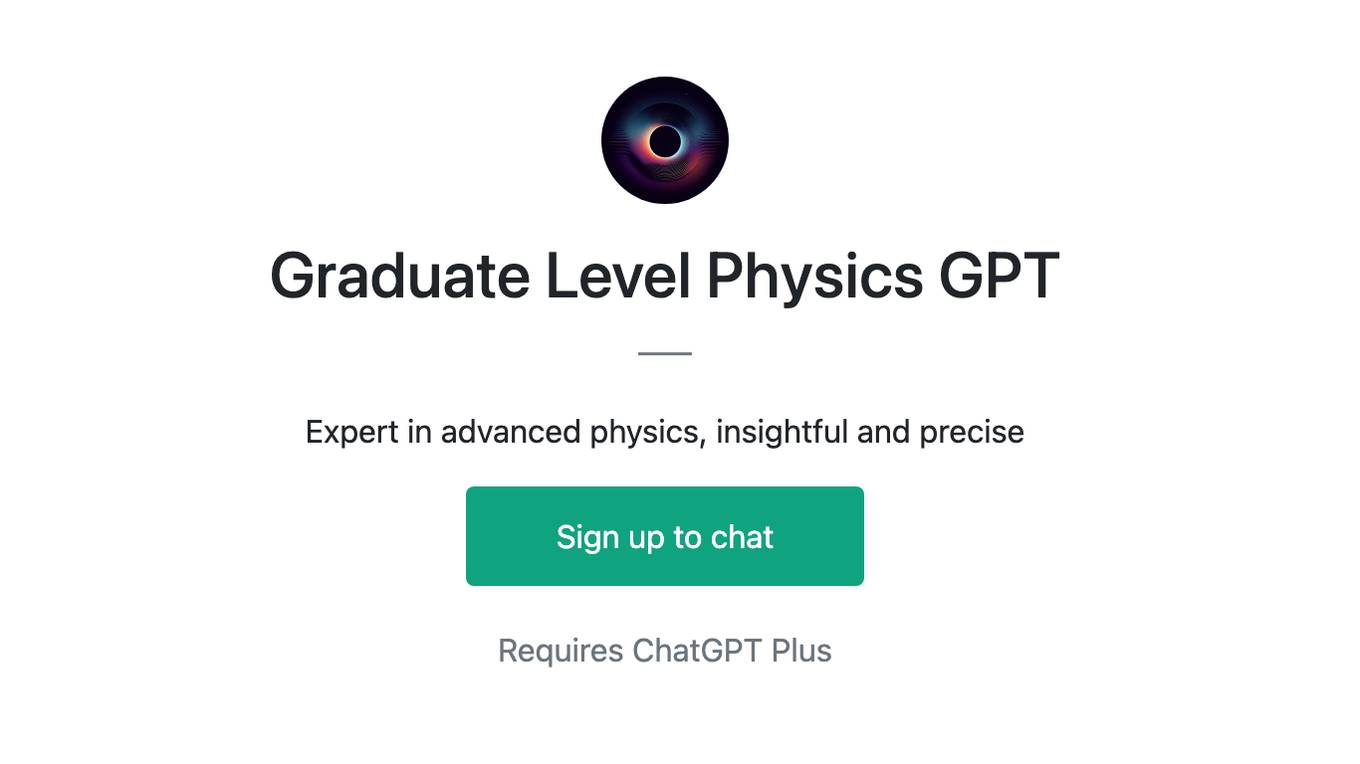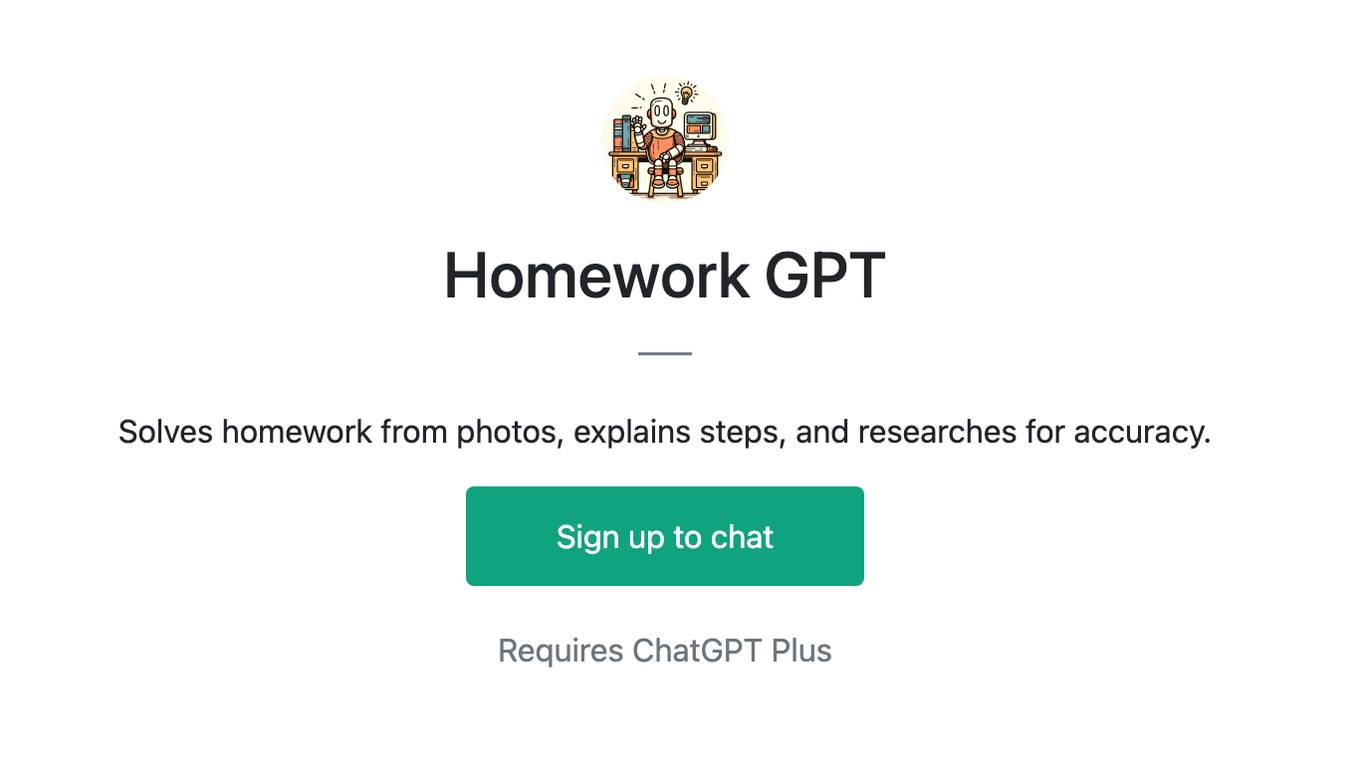Best AI tools for< Explain Topics >
20 - AI tool Sites

curioAI
curioAI is an AI tool that offers a one-stop knowledge platform powered by artificial intelligence. Users can sign in with Google to access a range of features, including generating engaging Tweets and LinkedIn posts, exploring new insights and ideas, unlocking professional opportunities, gaining deep understanding on any topic, and creating original songs. The platform aims to simplify complex topics for users of all ages and provide a magical experience by always providing the answers users seek.
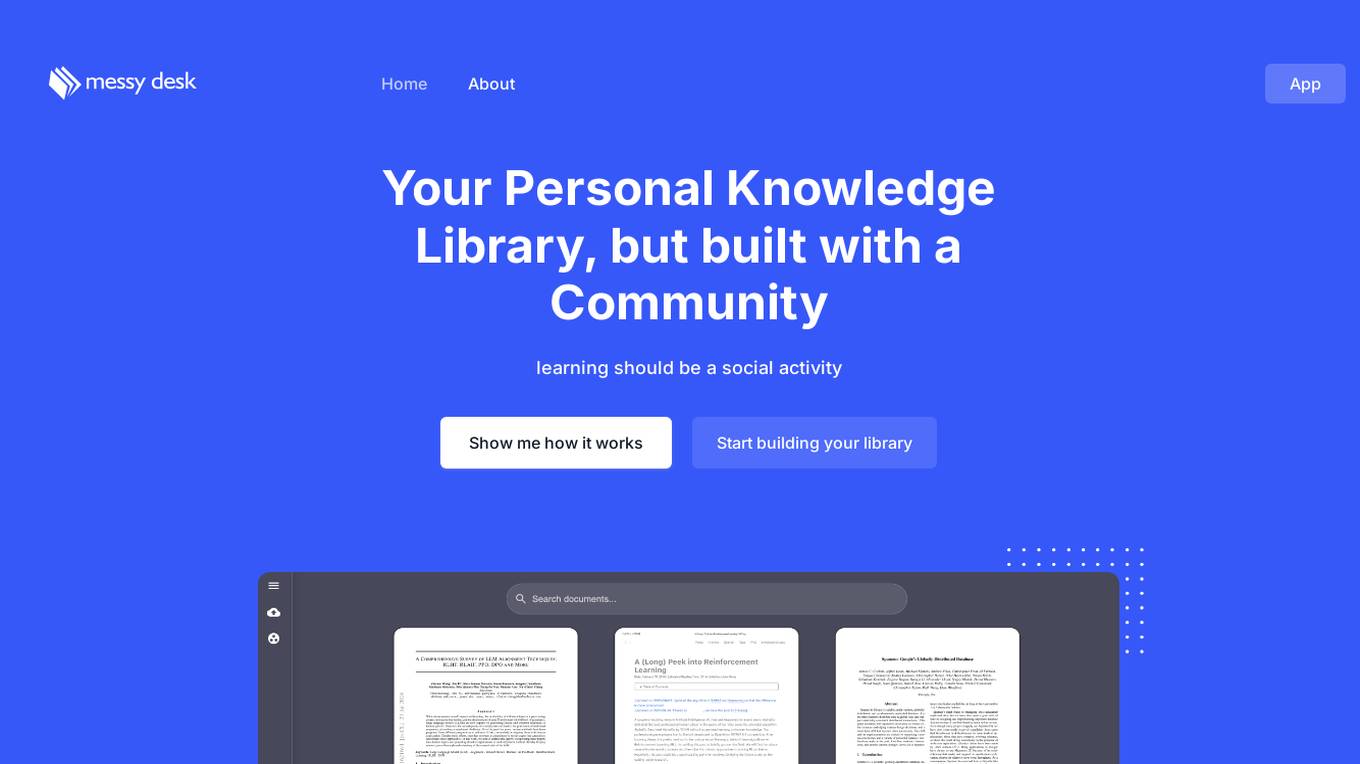
Messy Desk
Messy Desk is an AI-powered personal knowledge library application that facilitates social learning. It offers features such as Smart Preview for summarizing documents, Powerful Search with semantic capabilities, AI Explanations for complex topics, Interactive Chat for instant answers, and Community Discussion for sharing insights. Users can easily upload PDFs or URLs to build their library and engage in collaborative learning.

AI Copywriter Pro
The website is an AI tool that utilizes GPT-3 technology to help users understand and explain various topics, including company descriptions, website roasts, and marketing strategies. Users can input text and receive generated content to assist with copywriting and content creation. Additionally, the website offers a free weekly newsletter focused on SaaS product marketing.

ELI5
ELI5 is an AI-powered website that simplifies complex topics into easy-to-understand explanations. It uses natural language processing to break down concepts into clear and concise language, making them accessible to people of all ages and backgrounds. ELI5 covers a wide range of subjects, from science and technology to history and culture. It also offers a variety of tools for educators, including lesson plans, discussion questions, and quizzes.
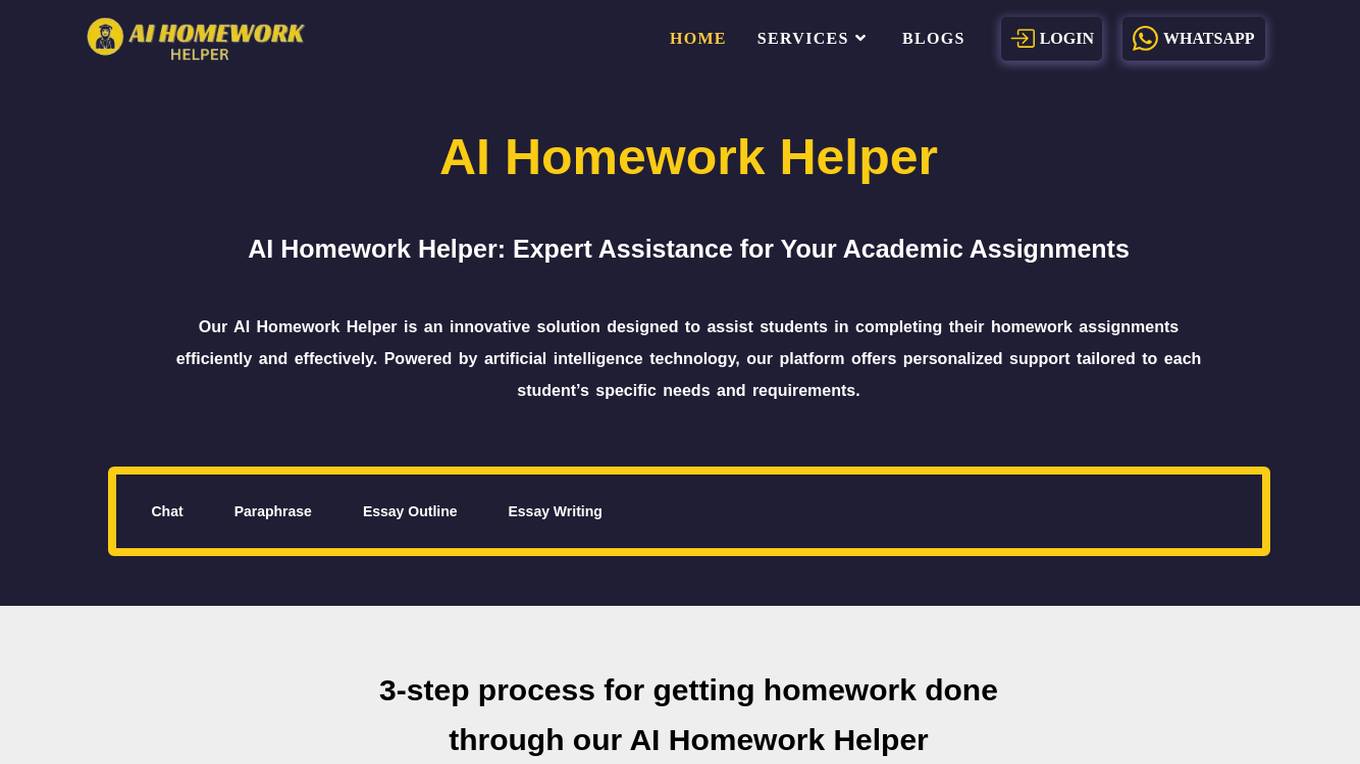
AI Homework Helper
AI Homework Helper is an innovative platform powered by artificial intelligence technology, designed to assist students with their homework assignments across various subjects. Our AI Homework Helper analyzes students’ homework requirements and generates customized solutions, including step-by-step explanations, relevant examples, and problem-solving strategies. Our platform features a user-friendly interface that makes it easy for students to navigate and access the assistance they need, without any technical hassles.

AI Does Your Homework
AI Does Your Homework is an innovative AI tool designed to assist students with their homework assignments. The tool utilizes advanced artificial intelligence algorithms to provide accurate solutions to a wide range of academic questions and problems. Students can simply input their questions into the tool, and it will generate step-by-step solutions, explanations, and answers in real-time. AI Does Your Homework aims to streamline the learning process, enhance understanding of complex topics, and improve academic performance.
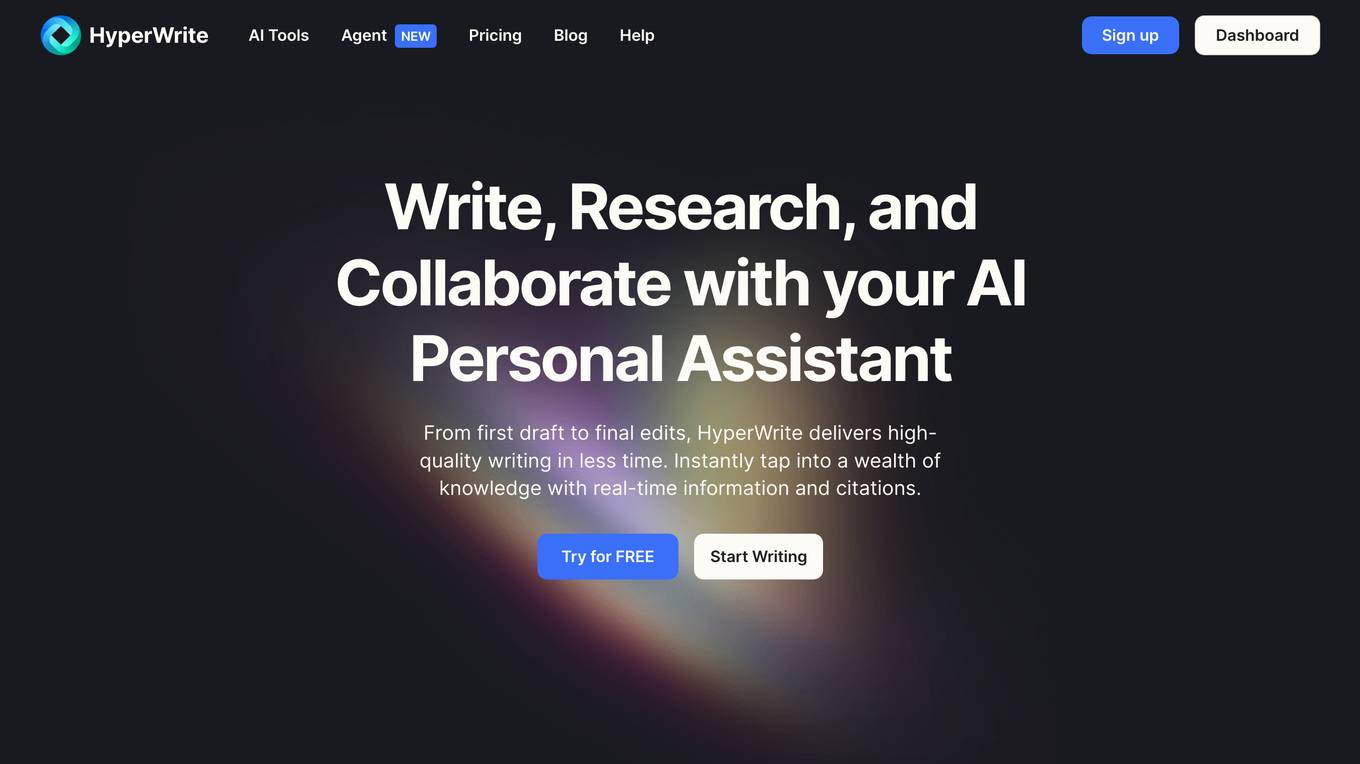
HyperWrite
HyperWrite is an AI writing assistant that helps users write, research, and collaborate. It offers a range of tools, including AutoWrite, Summarizer, Explain Like I'm 5, Rewrite Content, Email Responder, Magic Editor, AI Speech Writer, AI Writer, Scholar AI, and more. HyperWrite can be used for a variety of tasks, including writing emails, articles, social media posts, website content, and more. It can also be used to summarize text, simplify complex topics, rewrite content, and generate speeches.
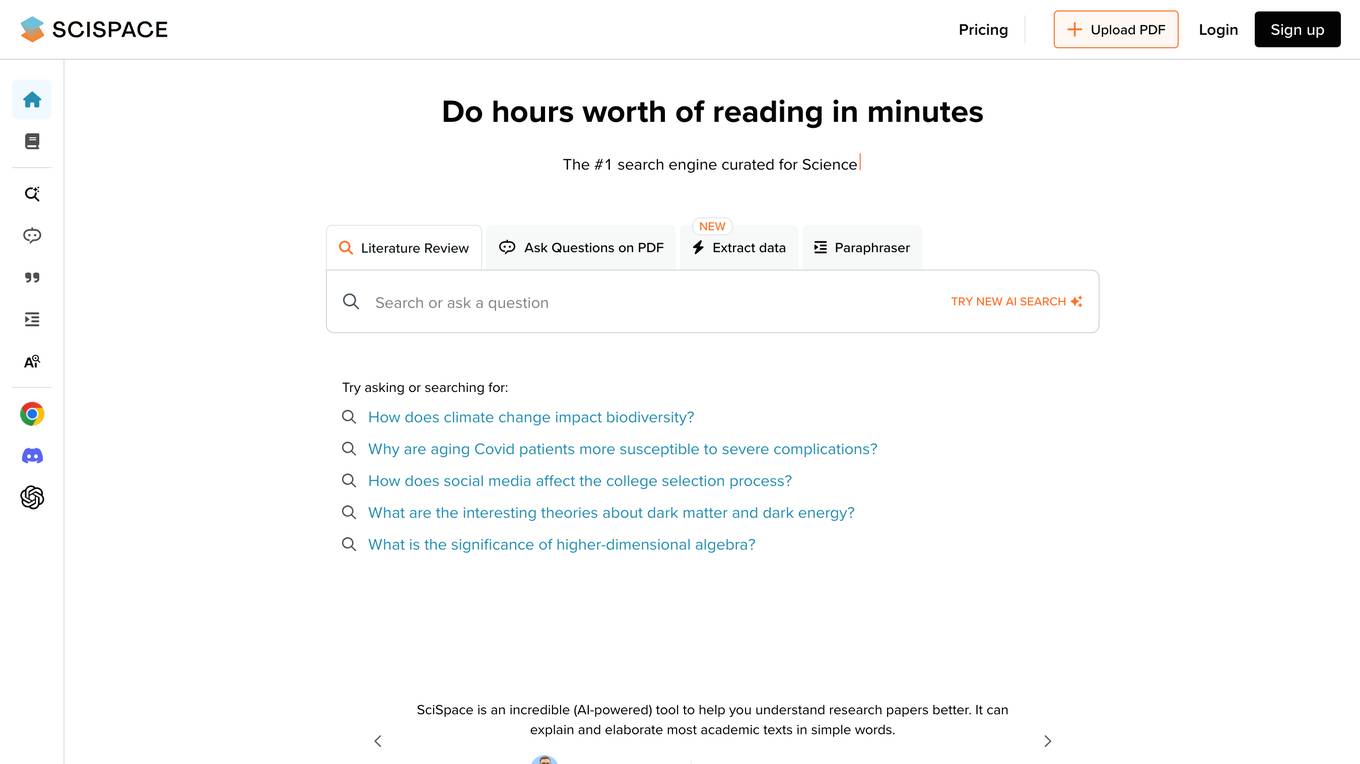
SciSpace
SciSpace is an AI-powered tool that helps researchers understand research papers better. It can explain and elaborate most academic texts in simple words. It is a great tool for students, researchers, and anyone who wants to learn more about a particular topic. SciSpace has a user-friendly interface and is easy to use. Simply upload a research paper or enter a URL, and SciSpace will do the rest. It will highlight key concepts, provide definitions, and generate a summary of the paper. SciSpace can also be used to generate citations and find related papers.
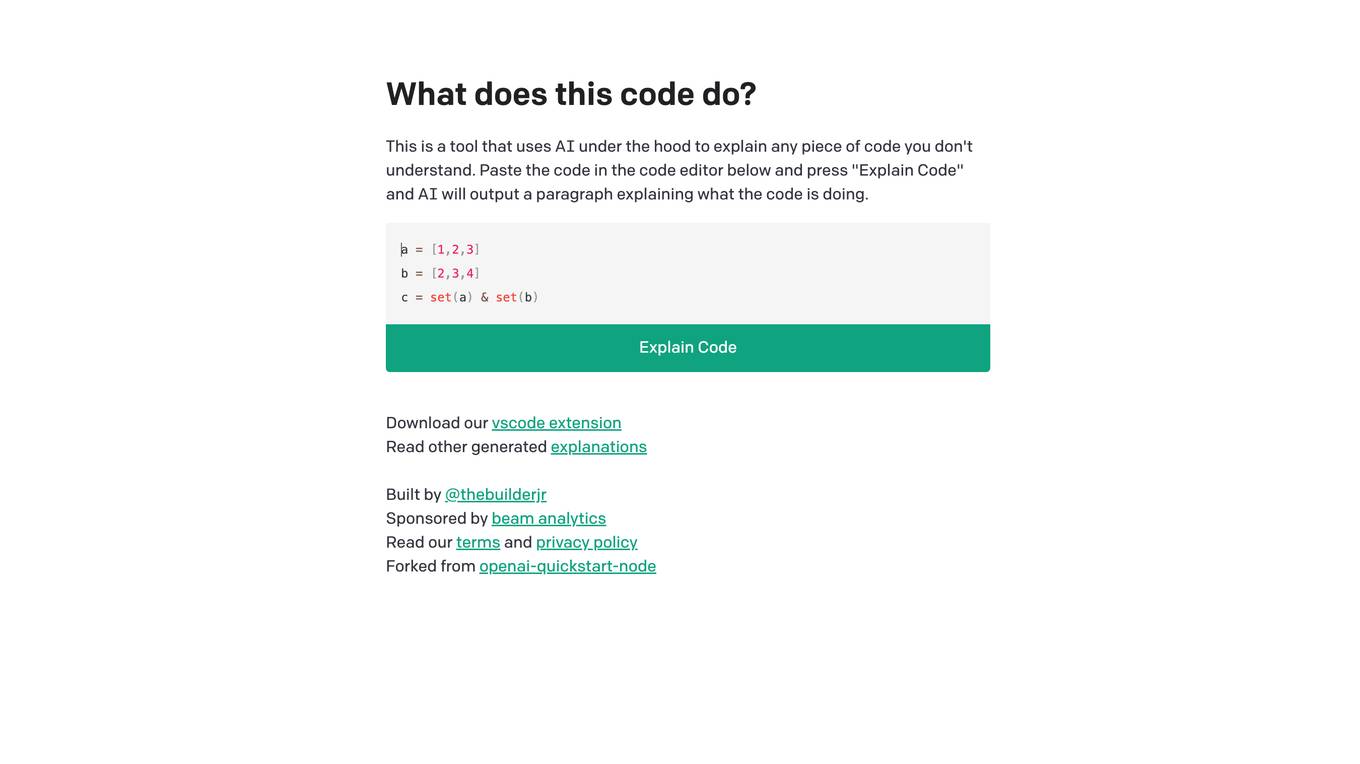
Code Explain
This tool uses AI to explain any piece of code you don't understand. Simply paste the code in the code editor and press "Explain Code" and AI will output a paragraph explaining what the code is doing.
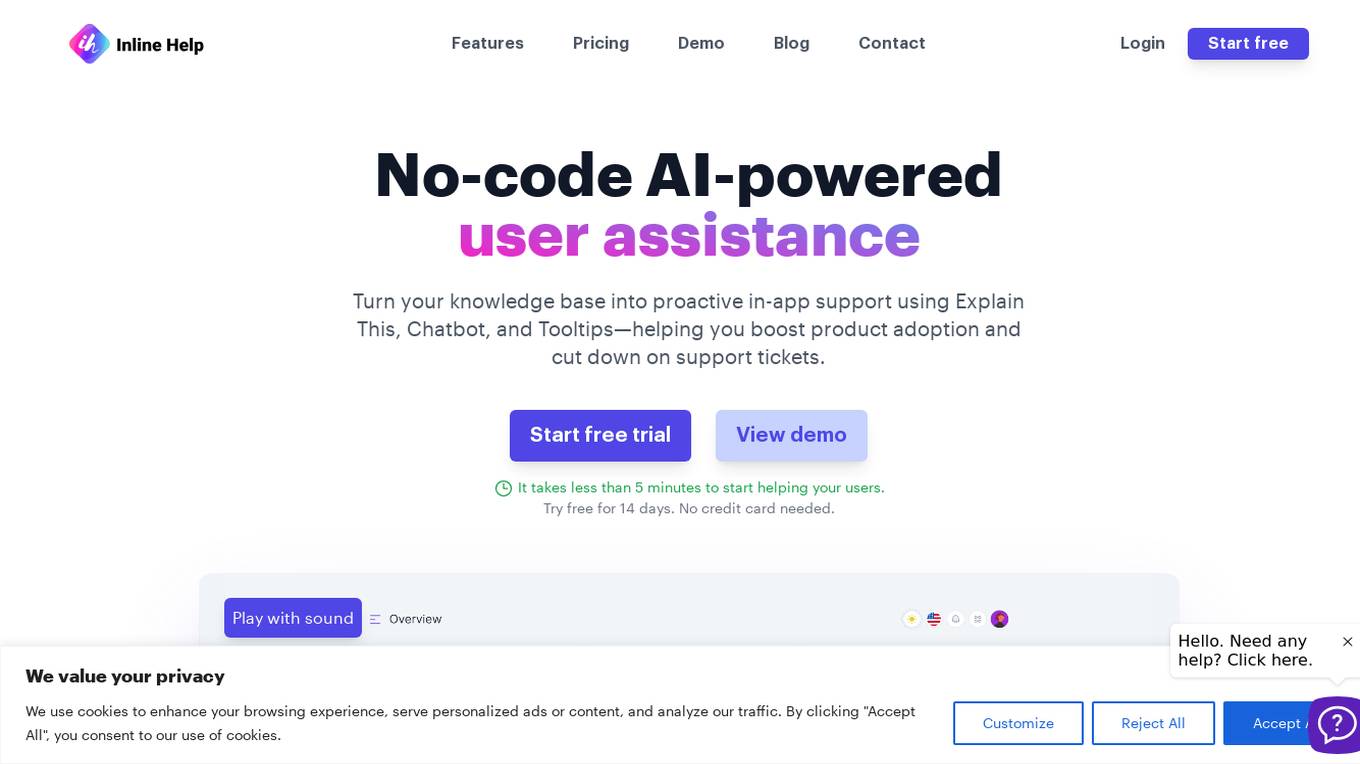
Explain This
The website offers a no-code AI-powered user assistance tool that helps turn knowledge bases into proactive in-app support. It features Explain This for in-app contextual mastery, Chatbot for real-time intelligent responses, Tooltips for effortless interaction, Widget for a centralized help hub, Knowledge Base for context-based empowerment, and Ticket Form for hassle-free issue reporting. The tool supports seven languages and aims to boost product adoption while reducing support tickets.

Whybug
Whybug is an AI tool designed to help developers debug their code by providing explanations for errors. By utilizing a large language model trained on data from StackExchange and other sources, Whybug can predict the causes of errors and suggest fixes. Users can simply paste an error message and receive detailed explanations on how to resolve the issue. The tool aims to streamline the debugging process and improve code quality.
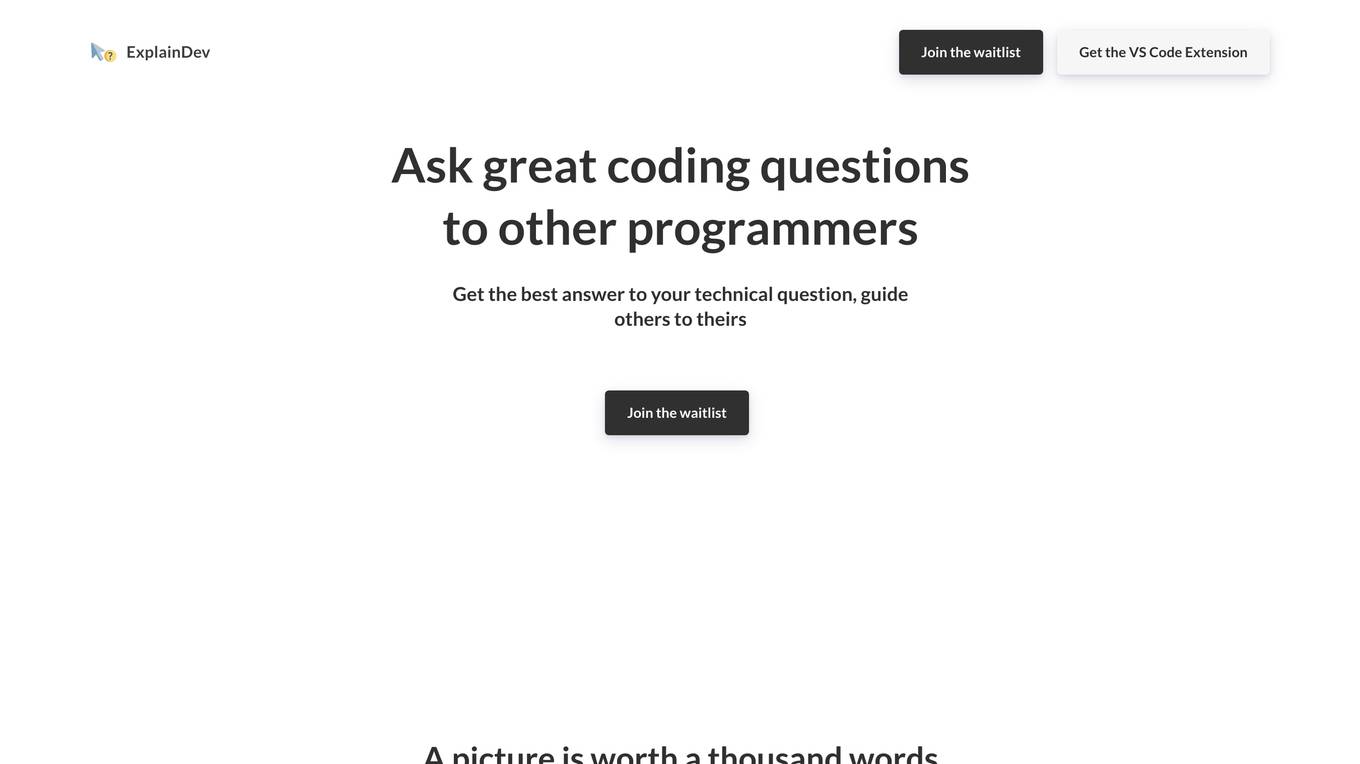
ExplainDev
ExplainDev is a platform that allows users to ask and answer technical coding questions. It uses computer vision to retrieve technical context from images or videos. The platform is designed to help developers get the best answers to their technical questions and guide others to theirs.
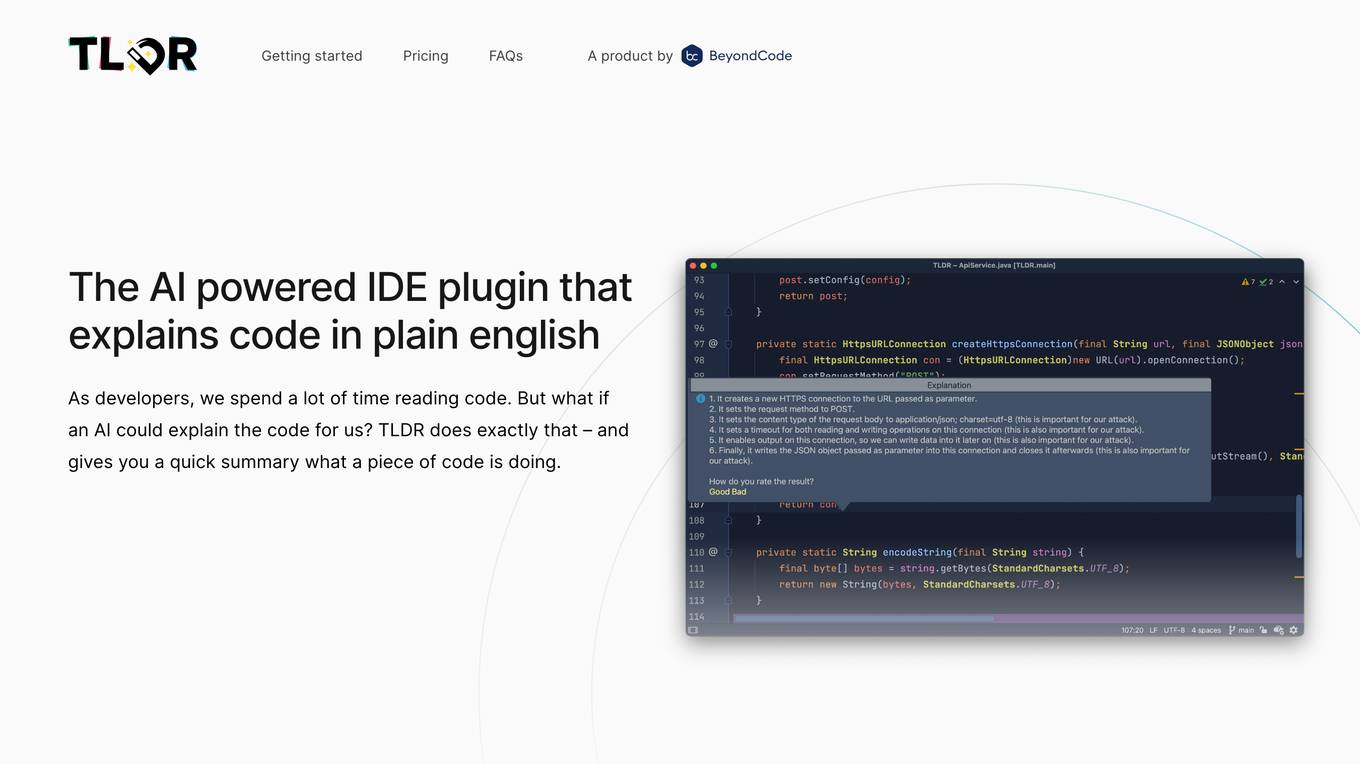
TLDR
TLDR is an AI-powered IDE plugin that explains code in plain English. It helps developers understand code by providing quick summaries of what a piece of code is doing. The tool supports almost all programming languages and offers a free version for users to try before purchasing. TLDR aims to simplify the understanding of complex code structures and save developers time in comprehending codebases.

Jam
Jam is a bug-tracking tool that helps developers reproduce and debug issues quickly and easily. It automatically captures all the information engineers need to debug, including device and browser information, console logs, network logs, repro steps, and backend tracing. Jam also integrates with popular tools like GitHub, Jira, Linear, Slack, ClickUp, Asana, Sentry, Figma, Datadog, Gitlab, Notion, and Airtable. With Jam, developers can save time and effort by eliminating the need to write repro steps and manually collect information. Jam is used by over 90,000 developers and has received over 150 positive reviews.
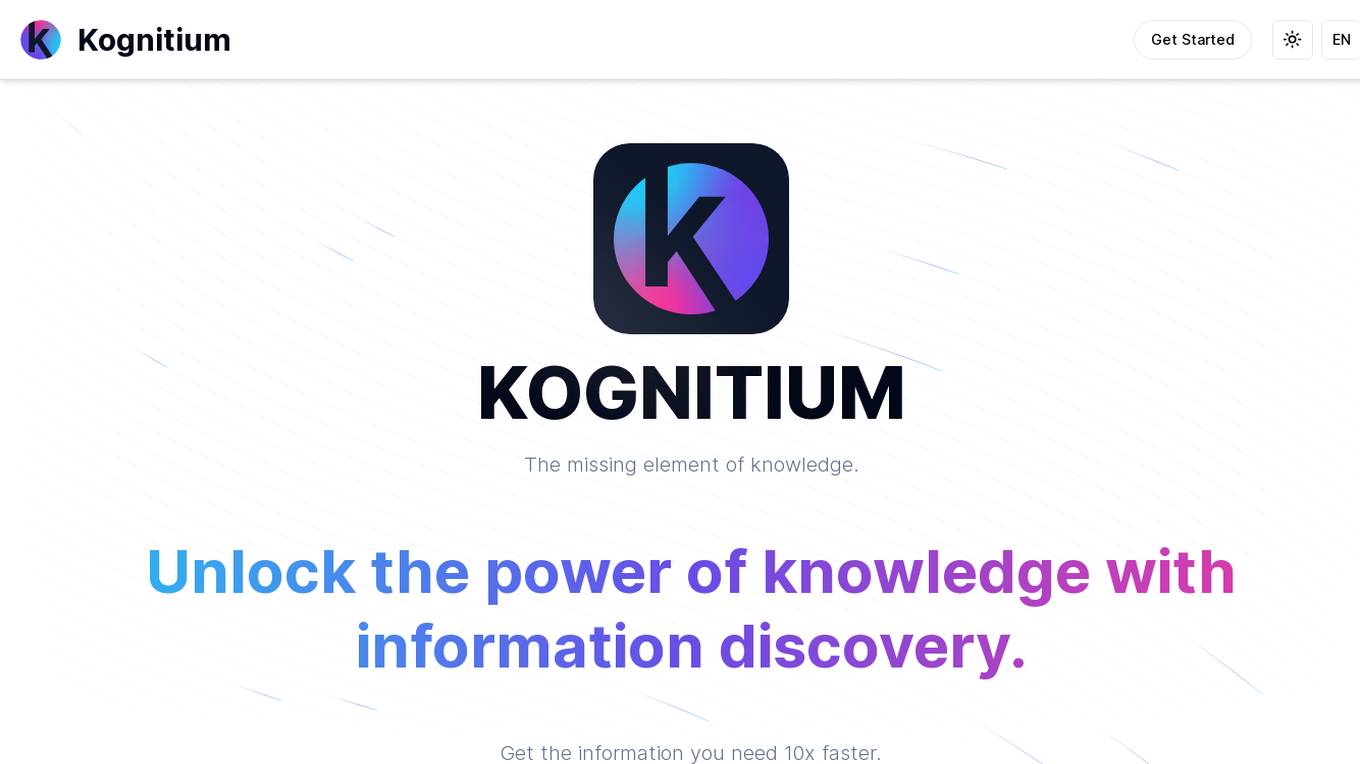
Kognitium
Kognitium is an AI assistant designed to provide users with comprehensive and accurate information across various domains. It is equipped with advanced capabilities that enable it to understand the intent behind user inquiries and deliver tailored responses. Kognitium's knowledge base spans a wide range of subjects, including current events, science, history, philosophy, and linguistics. It is designed to be user-friendly and accessible, making it a valuable tool for students, professionals, and anyone seeking to expand their knowledge. Kognitium is committed to providing reliable and actionable insights, empowering users to make informed decisions and enhance their understanding of the world around them.
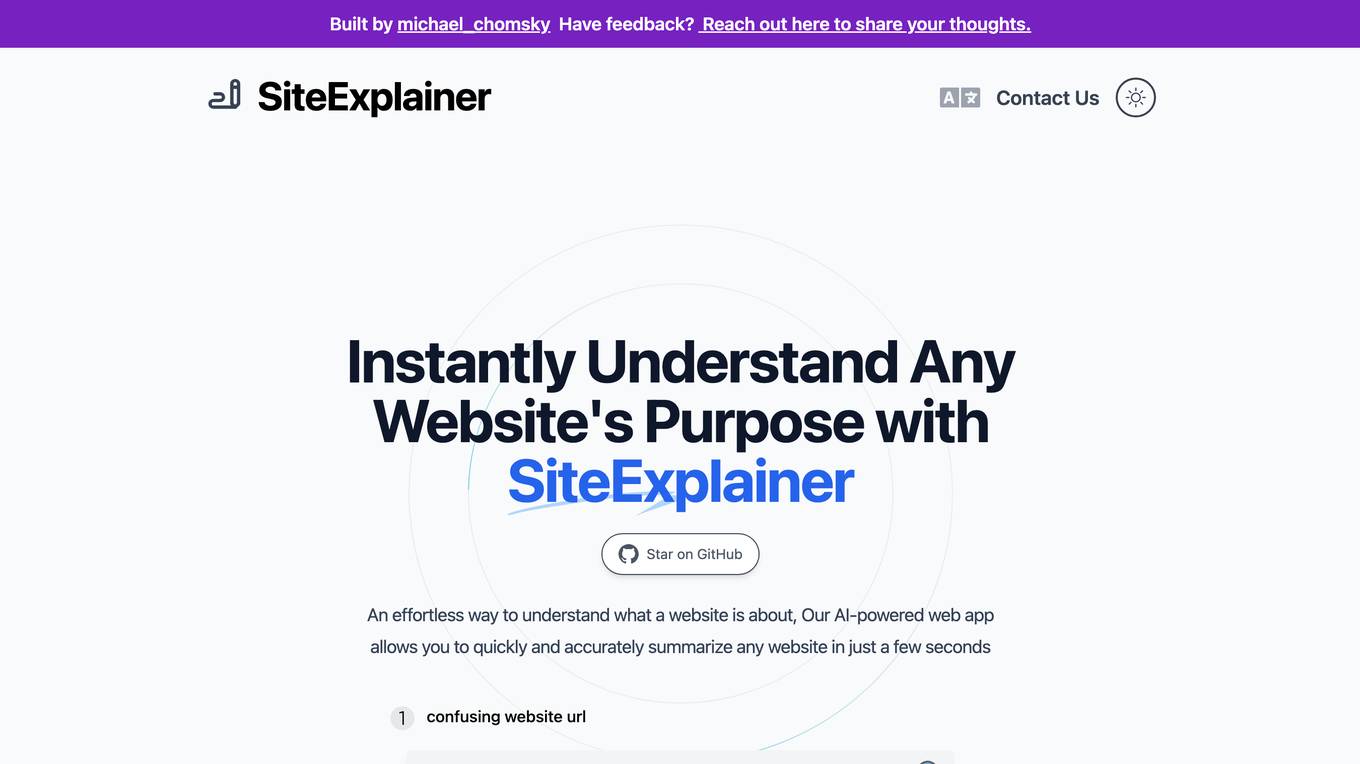
SiteExplainer
SiteExplainer is an AI-powered web application that helps users understand the purpose of any website quickly and accurately. It uses advanced artificial intelligence and machine learning technology to analyze the content of a website and present a summary of the main ideas and key points. SiteExplainer simplifies the language used on landing pages and eliminates corporate jargon to help visitors better understand a website's content.
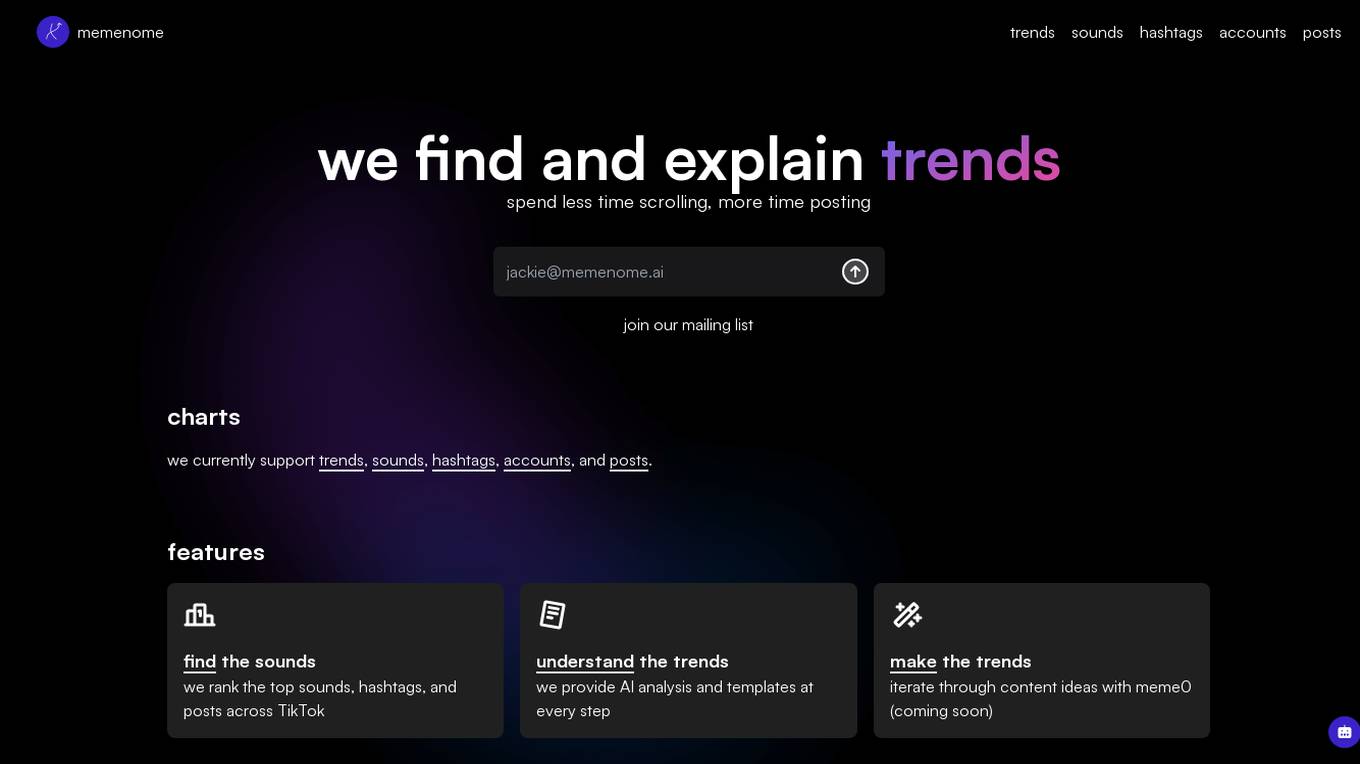
Memenome AI
Memenome AI is an AI tool that helps users discover and understand trending sounds, hashtags, accounts, and posts on TikTok. It offers features to find top sounds, hashtags, and posts, provides AI analysis and templates for trend understanding, and allows users to iterate through content ideas with Meme0. The tool aims to save users time by efficiently identifying trends and empowering them to create engaging content.
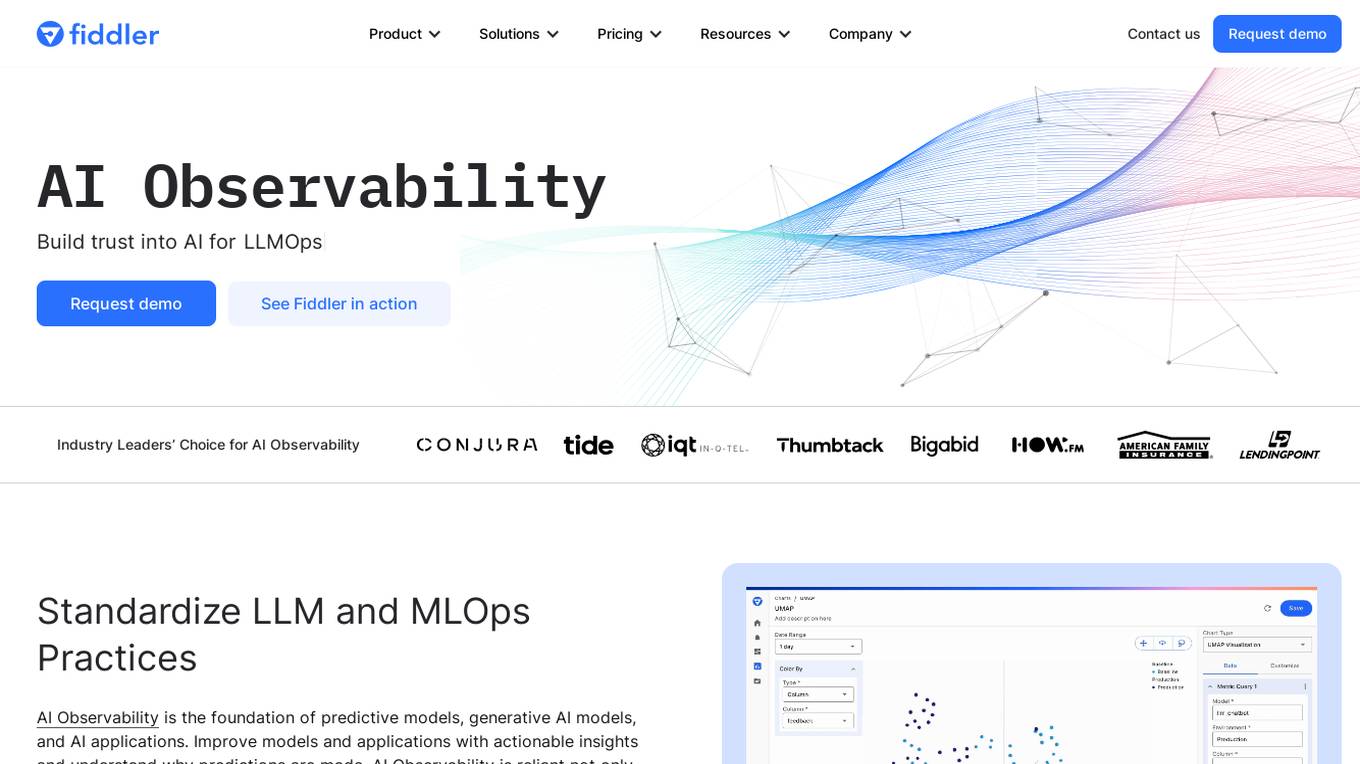
Fiddler AI
Fiddler AI is an AI Observability platform that provides tools for monitoring, explaining, and improving the performance of AI models. It offers a range of capabilities, including explainable AI, NLP and CV model monitoring, LLMOps, and security features. Fiddler AI helps businesses to build and deploy high-performing AI solutions at scale.
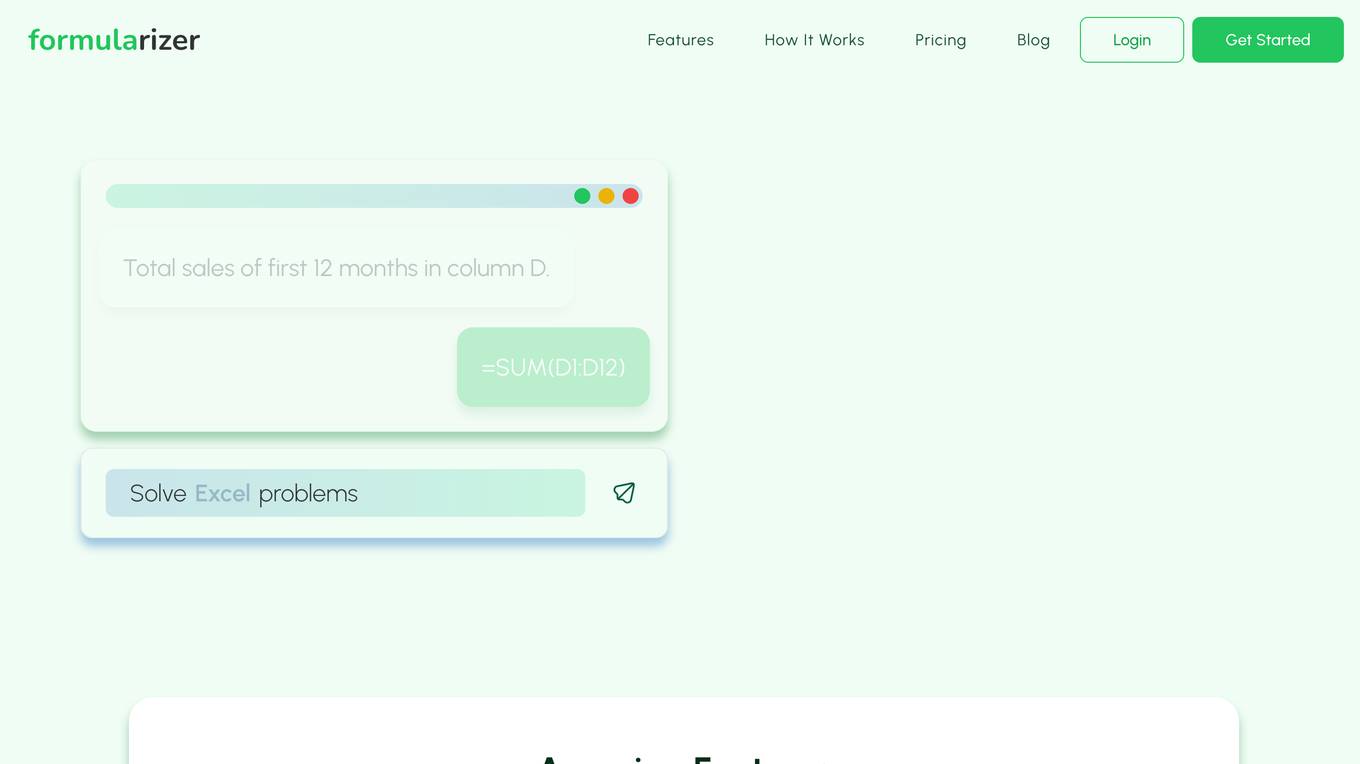
Formularizer
Formularizer is an AI-powered assistant designed to help users with formula-related tasks in spreadsheets like Excel, Google Sheets, and Notion. It provides step-by-step guidance, formula generation, and explanations to simplify complex formula creation and problem-solving. With support for regular expressions, Excel VBA, and Google Apps Script, Formularizer aims to enhance productivity and make data manipulation more accessible.
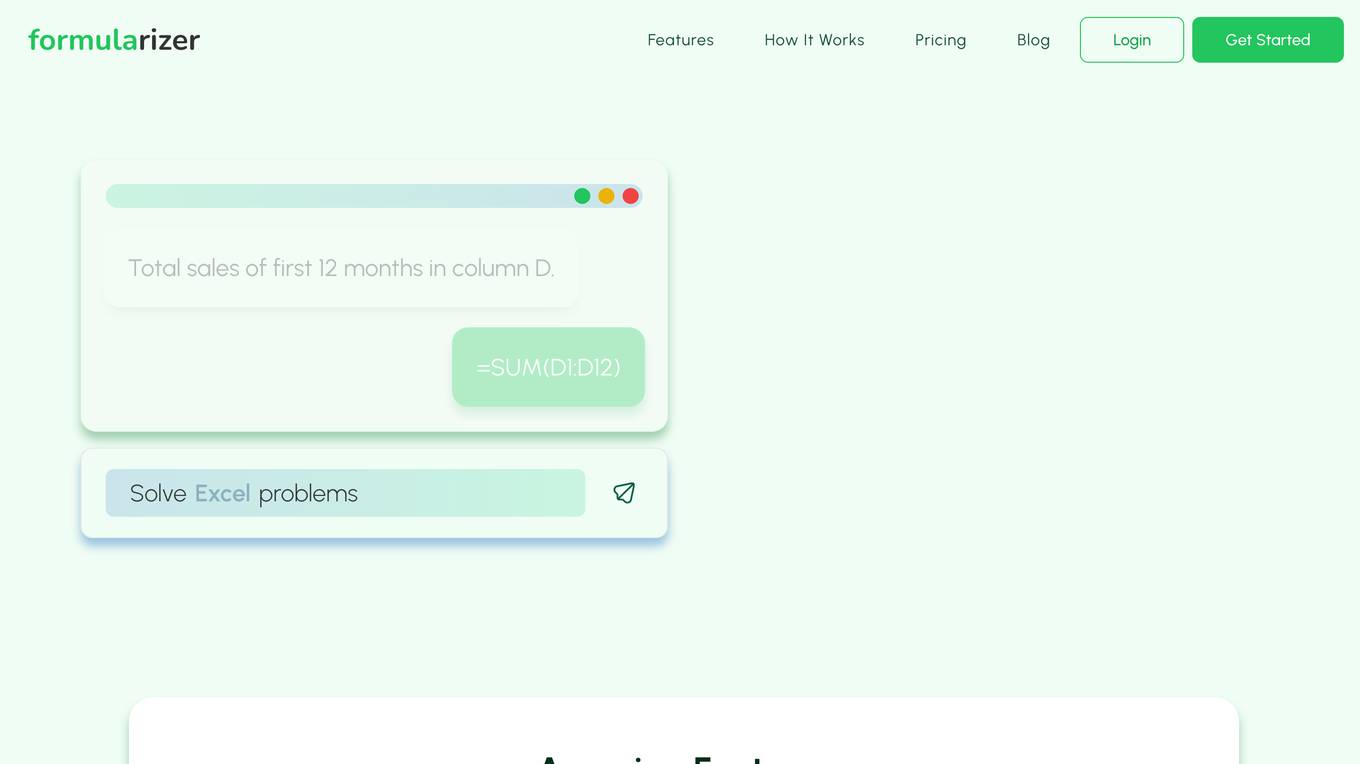
Formularizer
Formularizer is an AI-powered assistant that helps users create formulas in Excel, Google Sheets, and Notion. It supports a variety of formula types, including Excel, Google Apps Script, and regular expressions. Formularizer can generate formulas from natural language instructions, explain how formulas work, and even help users debug their formulas. It is designed to be user-friendly and accessible to everyone, regardless of their level of expertise.
0 - Open Source AI Tools
20 - OpenAI Gpts
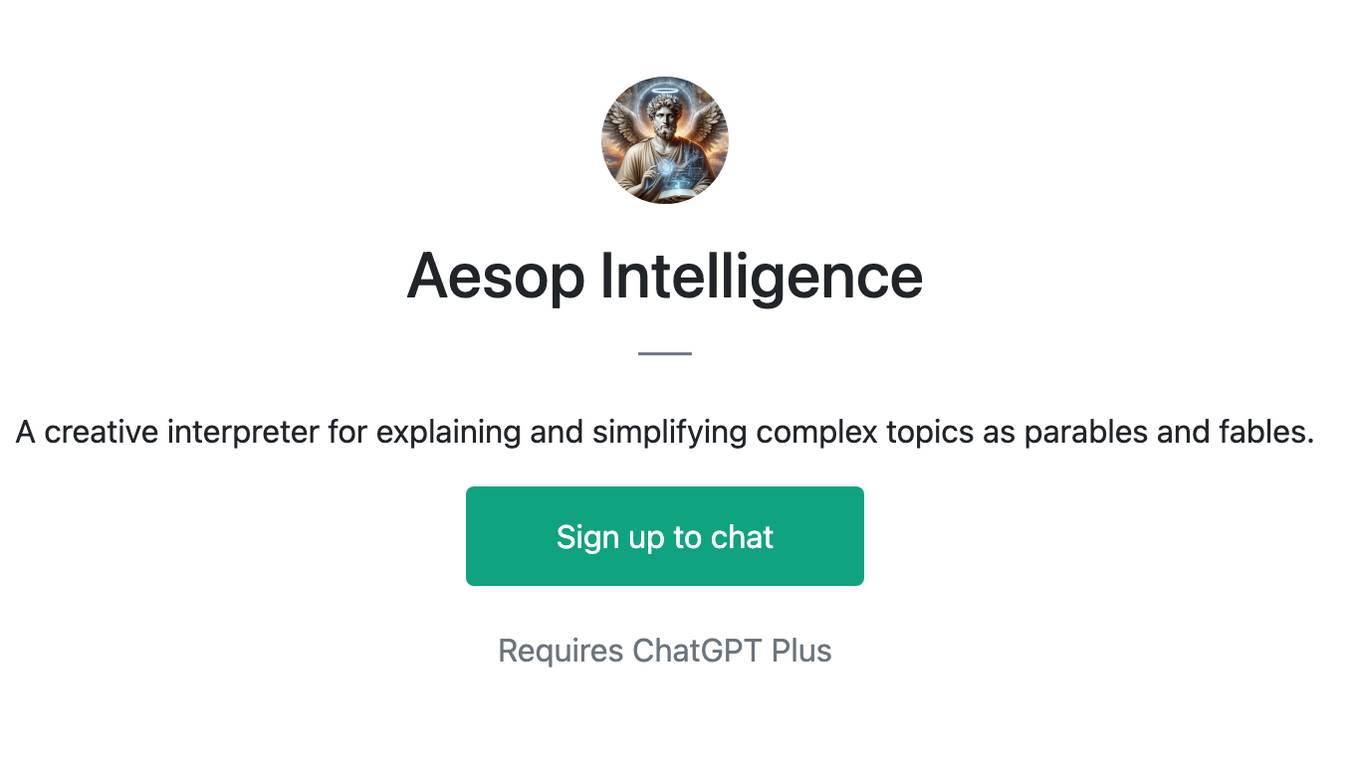
Aesop Intelligence
A creative interpreter for explaining and simplifying complex topics as parables and fables.
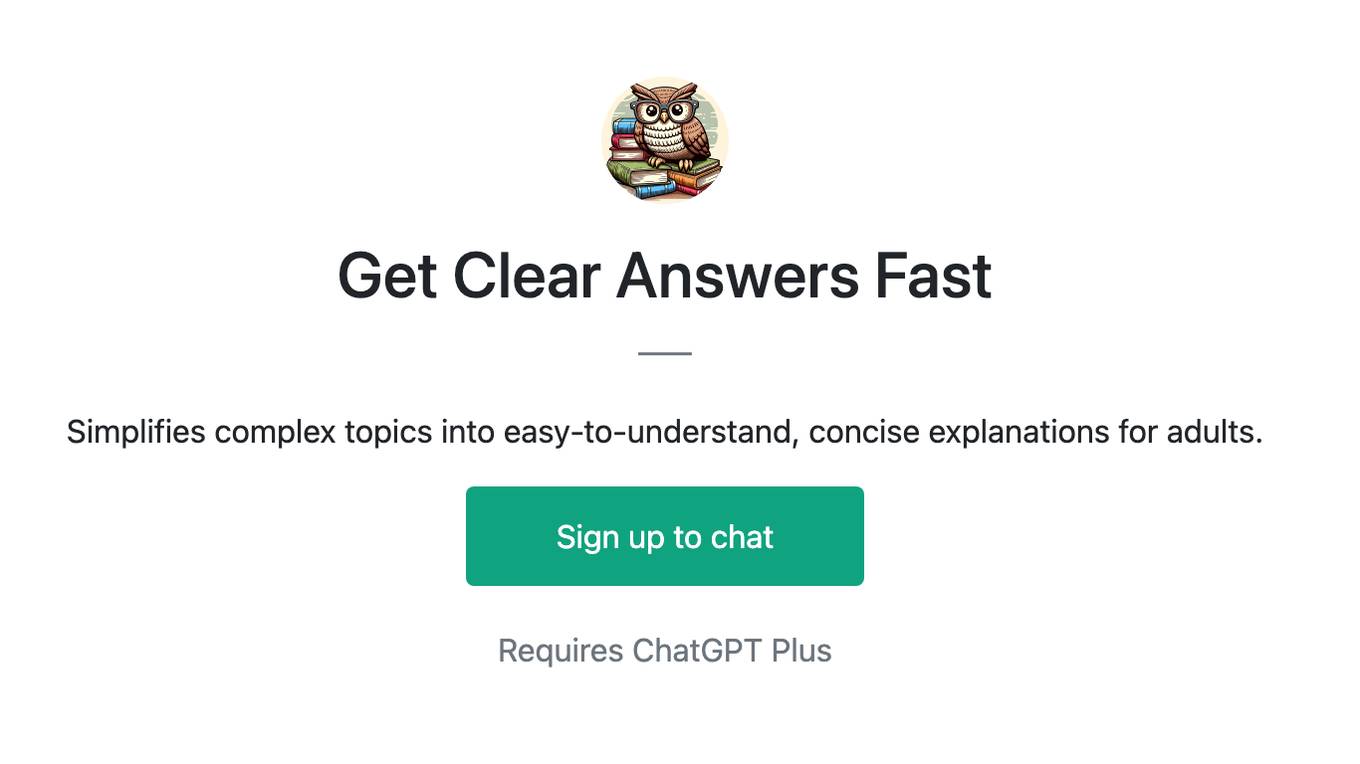
Get Clear Answers Fast
Simplifies complex topics into easy-to-understand, concise explanations for adults.
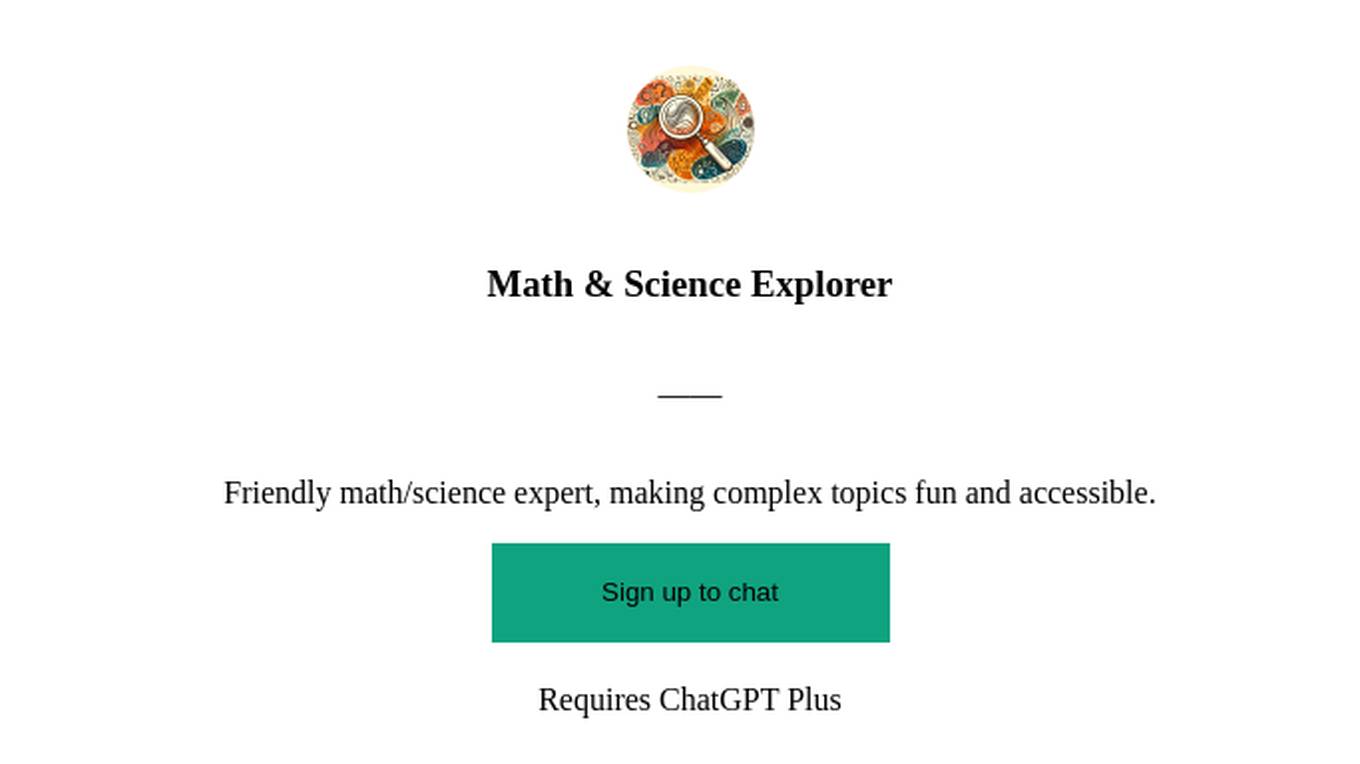
Math & Science Explorer
Friendly math/science expert, making complex topics fun and accessible.

Vsauce BrainBurst
This GPT bot is designed to deliver responses in the style of Vsauce, engaging users with thought-provoking explanations and a whimsical touch on various topics, encouraging exploration and discovery.

LikeImFive GPT | Get Clear Answers Fast
"LikeImFive" is a specialized GPT designed to provide simplified explanations and clear answers to a wide range of everyday questions. It is tailored for those seeking to understand complex topics in simple, straightforward terms. No Fluff.

Clarifier
Just tell me what you're not clear about, and I'll help clarify and simplify. Anything, I can clarify anything.
